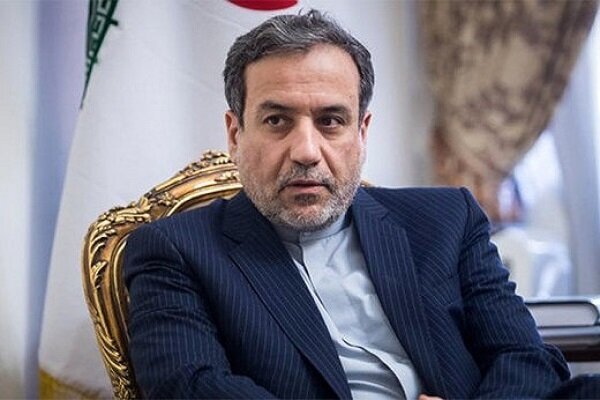Sanctions on Salehi prove ‘maximum pressure’ policy has reached dead end: Tehran

TEHRAN — Iran’s Deputy Foreign Minister Abbas Araghchi has denounced a recent move by the United States to impose sanctions against Iran’s nuclear chief, Ali Akbar Salehi, saying the move proved that the U.S. policy of “maximum pressure” against the Islamic Republic has reached a “dead end”.
“Dr. Salehi is a prominent political figure and Iran’s outstanding nuclear scientist, and under his leadership, our country’s nuclear science is reaching the highest scientific and practical levels today,” Araghchi said in a post on his Instagram account on Friday.
“The sanctions on Dr. Salehi only shows America’s anger and desperation from the dead-end policy of maximum pressure,” he added.
The U.S. Treasury Department announced on Thursday that Washington has imposed sanctions on the Atomic Energy Organization of Iran (AEOI) and its chief, Ali Akbar Salehi.
However, sources said the U.S. will once again waive its sanctions on Russian, Chinese and European firms that work at four Iranian nuclear facilities, Press TV reported, citing Reuters.
The U.S. Treasury will issue waivers to sanctions that bar non-U.S. firms from dealing with the AEOI, the sources told Reuters on condition of anonymity.
The waivers will allow those countries to continue working at the heavy water reactor in Arak, the Fordow enrichment facility, the Bushehr nuclear power plant and the Tehran research reactor.
The U.S. State Department was expected to make an announcement about the new sanctions later on Thursday.
“Imposing sanctions on this prominent scientific and political figure, which has been made only out of desperation, will have no effect on the development of the Islamic Republic of Iran’s peaceful nuclear program,” Foreign Ministry spokesman Mousavi says.
Iranian Foreign Ministry spokesman Abbas Mousavi also condemned the new sanctions, saying they will not hamper the Islamic Republic’s peaceful nuclear activities.
“Imposing sanctions on this prominent scientific and political figure, which has been made only out of desperation, will have no effect on the development of the Islamic Republic of Iran’s peaceful nuclear program,” Mousavi said on Friday.
“This is not the first time that he has been placed on the list of illegal and unilateral sanctions, just as it is not the first time that our nuclear scientists have been the target of the animosity of the U.S. and the Zionist regime,” he said.
The spokesman of the AEOI has also said the move only reflects Washington’s desperation.
Speaking to Fars on Thursday, Behrouz Kamalvandi said despite these sanctions “Iran’s nuclear program will continue with full force depending on the country’s needs.”
He said such futile efforts by Washington will have no impact on the Islamic Republic’s resolve.
Kamalvandi also reacted to remarks by Brian Hook, the U.S. special representative for Iran, who has claimed that Washington has sanctioned the AEOI and its chief because Iran had started new violations of its 2015 nuclear agreement with world powers.
Given its withdrawal from the deal and its violation of it commitments, the U.S. “is in no position” to comment on the manner in which Iran adheres to its nuclear obligations, the spokesman concluded.
U.S. President Donald Trump unilaterally quit the nuclear deal in May 2018 and introduced the harshest ever sanctions in history on Iran as part of his administration’s “maximum pressure” strategy against Iran.
In response to this move, on May 8, 2019, Iran announced that its “strategic patience” is over and started to gradually reduce its commitments to the JCPOA at bi-monthly intervals. At the time Iran announced if the European parties to the deal take concrete steps to shield Iran’s economy from the U.S. sanctions it will reverse its decision.
However, seeing no action by the Europeans, on January 5 Iran took the last and final step by removing all limits on its nuclear activities.
Iran’s moves are based on paragraph 36 of the JCPOA which “allows one side, under certain circumstances, to stop complying with the deal if the other side is out of compliance.”
Despite taking the last step, Iran has reminded the Europeans to fulfill their commitments in order to keep the deal alive.
France, Germany and the United Kingdom, three parties to the nuclear deal, issued a joint statement on January 14, announcing they have formally triggered the dispute mechanism that may lead to the snapback of UN sanctions against Iran.
MH/PA
Leave a Comment